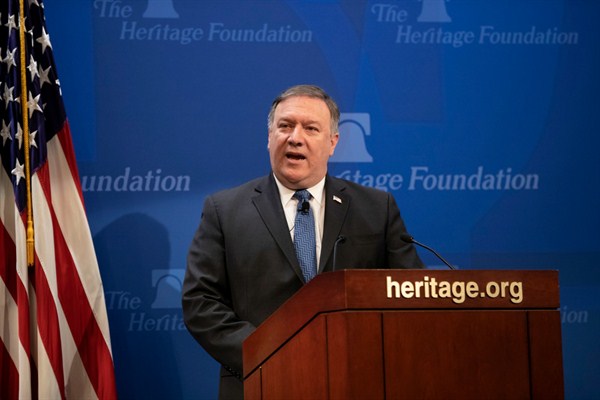In his first major policy address since becoming secretary of state, Mike Pompeo on Monday outlined the Trump administration’s “Plan B” for dealing with Iran now that the U.S. has decided to no longer comply with the terms of the nuclear deal it negotiated with Tehran and five other world powers in 2015.
At the heart of Pompeo’s approach is a list of 12 demands that Iran would have to meet in exchange for the U.S. concluding a formal Senate-ratified treaty guaranteeing Iran’s unfettered return to the global economy. As far as demands for international behavior go, Pompeo’s are reasonable: ceasing support for terrorists and militants across the Middle East, for instance, and releasing dual citizens effectively held as hostages on trumped-up charges. Even where the legal foundation is more debatable or non-existent—such as for ceasing all uranium enrichment and ballistic missile development, respectively—most observers would feel more comfortable if Iran acquiesced, if only for the calming effect it would have in the Middle East.
Clearly, then, the region would be a better place if Iran complied with Pompeo’s conditions for engagement.

